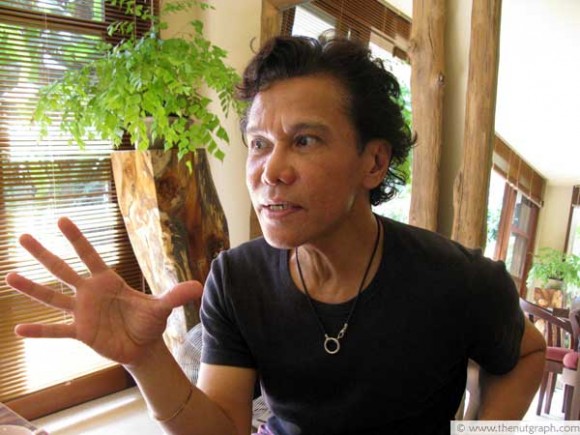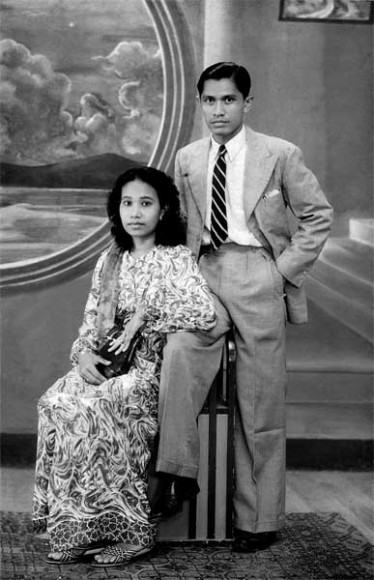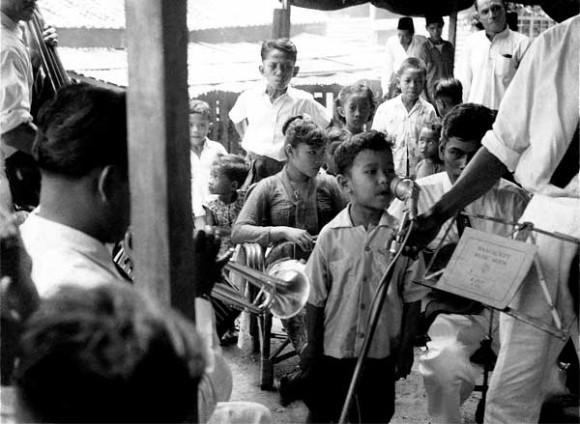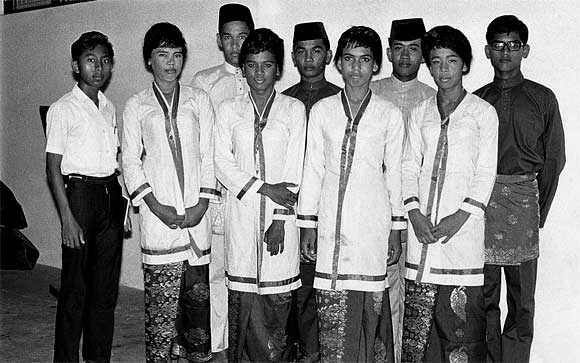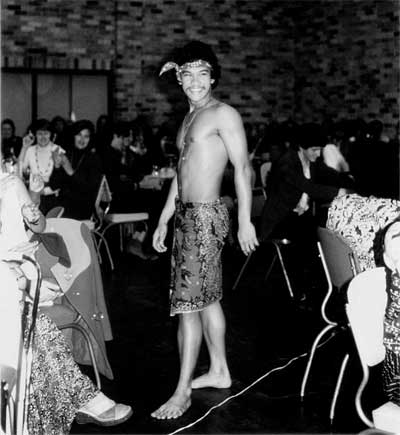ASIAN HUMAN RIGHTS COMMISSION - URGENT APPEALS PROGRAMME
Urgent Appeal Case: AHRC-UAC-199-2011

10 October 2011
---------------------------------------------------------------------
PAKISTAN: A 12 year-old Christian is gang raped for eight months, forcibly converted and then 'married' to her Muslim attacker
ISSUES: Gang rape; abduction; forced conversion of religion; child rights; miscarriage of justice; impunity
---------------------------------------------------------------------
Dear friends,
The
Asian Human Rights Commission (AHRC) has received information that A
12-year-old Christian girl was abducted and raped for eight months. The
rapists have not been arrested because of their affiliation with a
militant Muslim organization. The police are also refusing to order a
medical checkup. The Judicial Magistrate of the area took her statement
under section 164 Cr Pc (Criminal Procedure Code) but has not made any
orders for her security. One of the rapist claims that he has married
the girl but she denies that any marriage took place during her
abduction and captivity.
The police have warned the Christian
parents that it would be better to hand over the girl to her 'legal'
husband (the rapist) otherwise a criminal case will be filed against
them. CASE NARRATIVE: Miss
Anna (name withheld), is a 12-year-old Christian girl and the daughter
of Arif Masih. Arif is employed as a street sweeper (scavenger) at
WAPDA. He is a resident of quarter number 44, WAPDA colony, Shahdra,
Lahore, the capital of Punjab province. Anna was kidnapped by two Muslim
men on December 24, 2010, one day before Christmas. According to the
report sent by the Pakistan Minority Movement, on that day in the
morning her friend, Miss Nida, who lives in her neighbourhood, came to
her house and asked Anna to go shopping. According to the plan of the
perpetrators, her friend took her to a street where they waited in a
car. Miss Nida introduced the perpetrator her as her uncle.
Anna
was then taken a long distance and dropped at a house where she was
raped. After two days some women, relatives of the rapists, namely
Mumtaz Bibi.Farzana Bibi, Kiran Bibi along with her friend Nida came
with some papers and told her to sign them otherwise she would not be
released. Eventually she did sign with hesitation but was not released.
The papers were about her marriage to one of the perpetrators, Muhammad
Irfan. She was taken to several places and was forced to convert to
Islam. When she refused she was manhandled and beaten.
After her
abduction, her father filed an FIR against unknown people on 5/1/2011.F
I R NO 18/11. Sr. No 2138 to the Factory area police station district
Shaikhupura, Lahore. However, the police took no action for eight
months.
In the first week of September 2011, more than eight
months after her disappearance, Anna called her family from
Tandianwalla, district Faisalabad, 190 kilometers from Lahore, and told
them that she had been abducted but had escaped and was hiding at a bus
stop. The parents went there and recovered her. She was brought back to
her home and the parents produced her before the First Class Magistrate,
factory area, Shadra, Miss Aasma Tehseen, who recorded her statement
under section 164 of Cr Pc but did not order any action for her
protection or a medical checkup.
The rapists then immediately
contacted the police through their religious group and produced a
marriage certificate showing that one of them, Muhammad Irfan, was
married to her. When Anna's parents went to the factory area police
station to change the FIR to include the names of the rapists in the
case the police flatly refuse to allow this and said she that as she had
married and converted to Islam it would be better to hand over the girl
to her legal husband. If they refused they were told that a criminal
case would be filed against them.
The Christian family is in
hiding from the rapists and the police and according to the Christian
community, the religious extremists, who are from a banned organization,
the Lashkar-e-Tayyaba, are searching them. The abductors are claiming
that she is pregnant but her mother denies that this is true. And in
fact, make no difference whatsoever to the girl's plight.
The
irony of the matter is that the police never thought to ask the rapists
and their religious groups as to how a girl of 12 could be married when
according to the law marriage under the age of 16 is illegal. This is
yet another example of how the Punjab provincial government is allegedly
patronizing banned militant organizations.
ADDITIONAL INFORMATION: In
Pakistan it is has become a common practice from the religious groups
to abduct girls from religious minority groups and rape them and when
caught they produce marriage certificates and even then do not allow
them to meet their parents. The law enforcement authorities never try to
prosecute such perpetrators because the religious groups are doing
great work in the name of Islam.
Religion can also function both
as a primary motivation and as a determinant of criminal complaint
outcomes. The increase in forced marriage and forcible conversion by
Muslim extremists may owe in part to the aversion of the state to
protecting the rights of religious minorities. The U.S. State Department
2009 Human Rights Report for Pakistan concludes that both organic
reluctance and outside pressure contribute to the courts’ religious
bias: Courts routinely failed to protect the rights of religious
minorities. Judges were pressured to take strong action against any
perceived offense to Sunni orthodoxy. The judiciary rarely heard
discrimination cases dealing with religious minorities. Other
manifestations of religious bias include socially condoned instances of
harassment at work.
Information regarding this incident can also be found from the following links:
http://abcnews.go.com/International/wireStory?id=10317283;
http://abcnews.go.com/International/wireStory?id=10317283;
http://abcnews.go.com/International/wireStory?id=10317283;
http://abcnews.go.com/International/wireStory?id=10317283.
As
many as 20 to 25 girls from the Hindu community are abducted every
month and converted forcibly, according to Amarnath Motumal, an advocate
and council member of the Human Rights Commission of Pakistan. Many
abducted girls are raped, others are never heard from again by their
families; all cases involved a struggle to access their right to
redress. The AHRC has documented numerous cases in which police have
ignored or excused themselves from investigating crimes that involve a
Madrassa or Muslim cleric. The protection of the national religion does
not involve the promotion of its figureheads above the law; this
tendency has simply allowed Islam to become a shield behind which human
rights violations can take place.
SUGGESTED ACTION: Please
write the letters to the following authorities on the gang rape and
abduction of a 12 years old Christian girl for eight months. Please urge
the authorities that to prosecute the perpetrators and the officials of
the Factory area police station, Lahore for providing protection to
rapists and members of banned religious groups. Also urge to provide
protection to Christian family and the victim and also to the religious
minority who are facing such practices from the extremist Muslim groups.
Please note that the Asian Human Rights Commission has written
seperate letters to the UN Special Rapporteurs on Violence against Women
and on Freedom of Religion or Belief, Chairperson of the Committee on
the Rights of the Child and the Independent Expert on Minority Issues
requesting their urgent interventions on this regard.
To support this appeal, please click here:
 SAMPLE LETTER:
SAMPLE LETTER: Dear ___________,
PAKISTAN: A 12 year-old Christian is gang raped for eight months, forcibly converted and then 'married' to her Muslim attacker Name of victim: Miss
Anna (not her real name) 12, daughter of Arif Masih, employed as street
sweeper (scavenger) at WAPDA, resident of quarter number 44, WAPDA
colony, Shahdra, Lahore, capital of Punjab province,
Names of alleged perpetrators: 1. Muhammad Irfan, (rapist) resident of Shadra, factory area, Lahore, Punjab province
2. Muhammad Irshad, (rapist) resident of Shadra, factory area, Lahore, Punjab province
3. Mumtaz Bibi.resident of Shadra, factory area, Lahore, Punjab province
4. Farzana Bibi.resident of Shadra, factory area, Lahore, Punjab province
5. Kiran Bibi resident of Shadra, factory area, Lahore, Punjab province
6. Nida, resident of Shadra, factory area, Lahore, Punjab province
7. Station House Officer (SHO), factory area police station, Shadra, Lahore, Punjab province,
8.
Investigation officer, Arif Masih, employed as street sweeper
(scavenger) at WAPDA, resident of quarter number 44, WAPDA colony,
Shahdra, Lahore, capital of Punjab province,
Date of incident: WAPDA Quarters resident of Shadra, factory area, Lahore, Punjab province
Place of incident: December 24, 2010
I
am writing to voice my deep concern regarding the gang rape of a young
Christian girl who was then forcibly converted to Islam and then
'married' to one of her attackers by the members of a banned religious
organization.
I learned that Anna was kidnapped by two Muslim
men on December 24, 2010, one day before Christmas. According to the
report sent by the Pakistan Minority Movement, on that day in the
morning her friend, Miss Nida, who lives in her neighbourhood, came to
her house and asked Anna to go shopping. According to the plan of the
perpetrators, her friend took her to a street where they waited in a
car. Miss Nida introduced the perpetrator her as her uncle.
Anna
was then taken a long distance and dropped at a house where she was
raped. After two days some women, relatives of the rapists, namely
Mumtaz Bibi.Farzana Bibi, Kiran Bibi along with her friend Nida came
with some papers and told her to sign them otherwise she would not be
released. Eventually she did sign with hesitation but was not released.
The papers were about her marriage to one of the perpetrators, Muhammad
Irfan. She was taken to several places and was forced to convert to
Islam. When she refused she was manhandled and beaten.
It is
very distressing that after her abduction, her father filed an F I R
against un known people on 5/1/2011.F I R NO 18/11. Sr. No 2138 to the
Factory area police station district Shaikhupura, Lahore. But police did
not take action on the case for eight months.
Further to my
information, in the first week of September 2011, after more than eight
months of her disappearance, Anna called her family from Tandianwalla,
district Faisalabad, 190 kilometers from Lahore, and told them that she
had been abducted but had escaped and was hiding at a bus stop. The
parents went there and recovered her. She was brought back to her home
and the parents produced her before the First Class Magistrate, factory
area, Shadra, Miss Aasma Tehseen, who recorded her statement under
section 164 of Cr Pc but did not order any action for her protection or a
medical checkup.
The rapists then immediately contacted the
police through their religious group and produced a marriage certificate
showing that one of them, Muhammad Irfan, was married to her. When
Anna's parents went to the factory area police station to change the FIR
to include the names of the rapists in the case the police flatly
refuse to allow this and said she that as she had married and converted
to Islam it would be better to hand over the girl to her legal husband.
If they refused they were told that a criminal case would be filed
against them.
It is appalling to know that this Christian family
is in hiding, not only from the rapists but also the police and
according to the Christian community, the religious extremists who are
from a banned organization, the Lashkar-e-Tayyaba, are searching them.
The abductors are claiming that she was pregnant but her mother denies
that this is correct.
The irony of the matter is that the police
never thought to ask the rapists and their religious groups as to how a
girl of 12 could be married when according to the law marriage under
the age of 16 is illegal. This is yet another example of how the Punjab
provincial government is allegedly patronizing banned militant
organizations.
In Pakistan it is has become a common practice by
the religious groups to abduct girls from religious minority groups and
rape them and when caught they produce marriage certificates and even
then do not allow them to meet their parents. The law enforcement
authorities never try to prosecute such perpetrators because they are
told that the religious groups are doing great work in the name of
Islam.
I am shocked that the government who always claim that
religious minorities are enjoying full security and rights as equal
citizens turn a blind eye to the actual situation which is that the
religious minority groups have no protection, even by the law
enforcement authorities, who prefer to work under the pressure of
religious groups.
The situation of rule of law is that the
police also accept the marriage of a 12-year-old girl and her forcible
conversion to Islam whereas according to Pakistan law that no girl can
be married before the age of 16 years.
I urge you to investigate
the case of Miss Anna and prosecute all the perpetrators involved in
the gang rape of a 12 years old girl for eight months. The police
officers who failed to act of the complaint of the father must be
prosecuted for their negligence. The tolerance of the government toward
the actions of the religious militants and the forcible conversation of
minorities must be brought to a halt. The government must put a halt to
the abduction, rape and forcible conversion of young girls.
I also urge you to provide full protection to the girl and her family and all possible medical and counseling treatment.
Yours sincerely,
----------------
PLEASE SEND YOUR LETTERS TO: 1. Mr. Asif Ali Zardari
President of Pakistan
President's Secretariat
Islamabad
PAKISTAN
Tel: 92-51-9204801-9214171
Fax 92-51-9207458
Email: publicmail@president.gov.pk
2. Mr. Syed Yousaf Raza Gilani
Prime Minister
Prime Minister House
Islamabad
PAKISTAN
Fax: +92 51 922 1596
Tel: +92 51 920 6111
E-mail: secretary@cabinet.gov.pk or pspm@pmsectt.gov.pk
3. Federal Minister for Human Rights
Ministry of Human Rights
Old US Aid building
Ata Turk Avenue
G-5, Islamabad
PAKISTAN
Fax: +92 51 9204108
Email: sarfraz_yousuf@yahoo.com
4. Mr. Lateef Khosa
Governor of Punjab
Governor House
Mall Road
Lahore
PAKISTAN
Fax: +92 42 99203044
Email: governor.sectt@punjab.gov.pk
5. Mr Nasir Mehmood Khosa
Chief Secretary of Government of Punjab
Punjab Secretariat
Lahore
PAKISTAN
Fax: +92 42 7324489
E-mail: chiefsecy@punjab.gov.pk
6. Mr. Rana Sana Ullah
Minister of Law
Government of Punjab
Punjab Secretariat
Ravi Road
Lahore
PAKISTAN
Fax: +92 42 99212004
E-mail: law@punjab.gov.pk
7. Dr. Faqir Hussain
Registrar
Supreme Court of Pakistan
Constitution Avenue, Islamabad
PAKISTAN
Fax: + 92 51 9213452
E-mail: mail@supremecourt.gov.pk
8. Mr. Tariq Saleem
Inspector-General of Police, Punjab
Police Head Office, Lahore, Punjab province
PAKISTAN
Fax: +92 42 9921006
Thank you.
Urgent Appeals Programme
Asian Human Rights Commission (
ua@ahrc.asia)





 “We
hope that before the next general election, we will be able to contest
under our own banner as the Human Rights Party of Malaysia,” Uthayakumar
(left) said at the Jalan Duta Court Complex this afternoon.
“We
hope that before the next general election, we will be able to contest
under our own banner as the Human Rights Party of Malaysia,” Uthayakumar
(left) said at the Jalan Duta Court Complex this afternoon. required.
required. KUALA LUMPUR, Oct 11 — India’s fifth-largest mobile operator Aircel will find it tough to get banks to fund its expansion with police investigating its biggest shareholder T. Ananda Krishnan for criminal conspiracy over his stake in the company, the Times of India reported today.
KUALA LUMPUR, Oct 11 — India’s fifth-largest mobile operator Aircel will find it tough to get banks to fund its expansion with police investigating its biggest shareholder T. Ananda Krishnan for criminal conspiracy over his stake in the company, the Times of India reported today.










